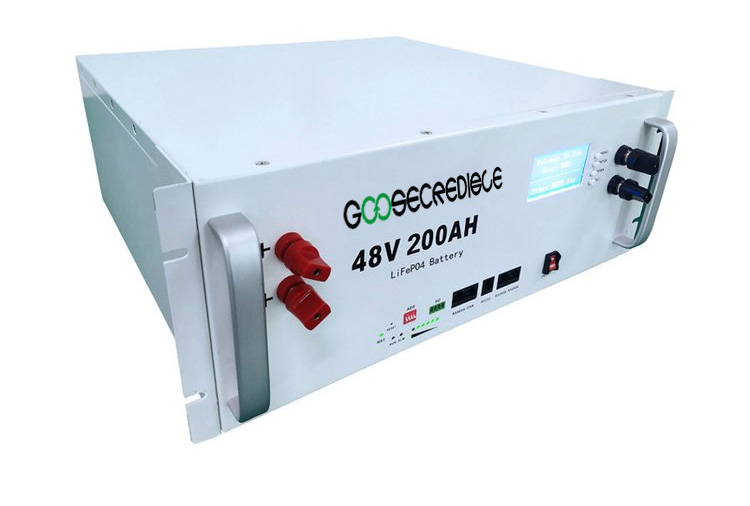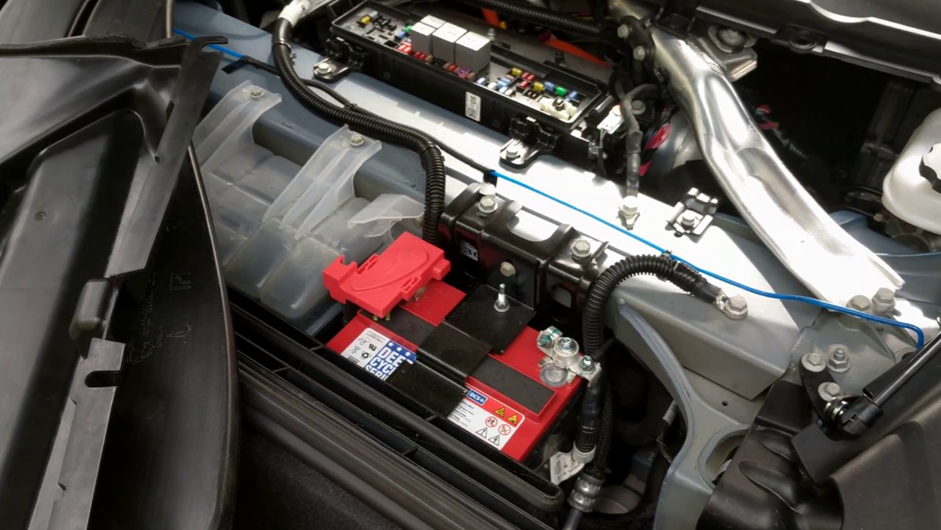Revolutionizing the Forklift Industry: The Power of Electric Forklifts with Lithium Batteries
The forklift industry has been making significant strides in recent years, thanks to the advent of electric forklifts powered by lithium batteries. This innovation has revolutionized the way materials are handled, offering numerous benefits over traditional fuel-powered forklifts. In this article, we will explore the advantages of electric forklifts with lithium batteries and their impact on the industry.
First and foremost, electric forklifts with lithium batteries are more environmentally friendly compared to their fuel-powered counterparts. Traditional forklifts emit harmful greenhouse gases and pollutants into the atmosphere, contributing to air pollution and climate change. In contrast, electric forklifts produce zero emissions during operation, making them an ideal choice for businesses aiming to reduce their carbon footprint and comply with environmental regulations.

Furthermore, electric forklifts with lithium batteries offer significant cost savings in the long run. Although the initial investment may be higher compared to traditional forklifts, the operational costs are considerably lower. Electric forklifts require less maintenance, as they have fewer moving parts and do not require regular oil changes or engine tune-ups. Additionally, the cost of electricity is generally lower than that of fuel, resulting in reduced energy expenses. With the rising costs of fuel and the maintenance requirements of traditional forklifts, electric forklifts with lithium batteries provide a more cost-effective solution for businesses.
Another advantage of electric forklifts is their quiet operation. Traditional forklifts are known for their loud engines and noise pollution. This can be disruptive in workplaces, particularly in indoor settings such as warehouses or distribution centers. Electric forklifts, on the other hand, operate silently, creating a more peaceful and productive work environment. Their quiet operation also allows for extended working hours without disturbing workers or neighboring businesses.
Electric forklifts with lithium batteries also offer improved performance and efficiency. They provide consistent power throughout the entire operation, eliminating the power loss experienced by traditional forklifts as the fuel tank depletes. This ensures that the forklift maintains optimal performance, allowing for increased productivity and reduced downtime. Additionally, lithium batteries have a longer lifespan compared to traditional lead-acid batteries, resulting in improved overall efficiency and reduced replacement costs.

Moreover, electric forklifts with lithium batteries offer enhanced maneuverability and control. They have a lower center of gravity due to the battery’s placement, resulting in improved stability and reduced tipping incidents. The precise control and responsiveness of electric forklifts allow operators to navigate narrow aisles and tight spaces with ease, increasing efficiency and safety in the workplace.
Despite all these advantages, it is worth noting that there are still some challenges associated with electric forklifts. The limited range and recharge time of lithium batteries can be a drawback, as it may require additional charging infrastructure and planning. However, advancements in battery technology are already addressing these issues, with faster charging capabilities and extended battery life becoming increasingly available.
In conclusion, the introduction of electric forklifts powered by lithium batteries has revolutionized the forklift industry. With their environmental benefits, cost savings, quiet operation, improved performance, and enhanced maneuverability, these forklifts offer a superior solution for businesses seeking efficiency, productivity, and sustainability. As battery technology continues to evolve, electric forklifts with lithium batteries are poised to become the standard in the industry, transforming the way materials are handled and reinforcing the commitment towards a greener future.
-
 The forklift industry has been making significant strides in recent years, thanks to the advent of electric forklifts powered by lithium batteries. This innovation has revolutionized the way materials are handled, offering numerous benefits over traditional fuel-powered forklifts. In this article, we will explore the advantages of electric forklifts with lithium batteries and their impact on the industry. First...Read more
The forklift industry has been making significant strides in recent years, thanks to the advent of electric forklifts powered by lithium batteries. This innovation has revolutionized the way materials are handled, offering numerous benefits over traditional fuel-powered forklifts. In this article, we will explore the advantages of electric forklifts with lithium batteries and their impact on the industry. First...Read more -
 To charge a Lithium Iron Phosphate (LiFePO4) battery, follow these general steps: Use a charger specifically designed for LiFePO4 batteries, as this type of battery has a different charging profile than other lithium-ion batteries. Connect the charger to the battery, making sure the polarity is correct. Set the charger to the appropriate charging voltage and current for your specific battery....Read more
To charge a Lithium Iron Phosphate (LiFePO4) battery, follow these general steps: Use a charger specifically designed for LiFePO4 batteries, as this type of battery has a different charging profile than other lithium-ion batteries. Connect the charger to the battery, making sure the polarity is correct. Set the charger to the appropriate charging voltage and current for your specific battery....Read more -
 In today's fast-paced and technology-driven world, uninterrupted power supply is of utmost importance for industries. Any downtime can result in significant financial losses, decreased productivity, and damaged reputation. To counter such risks, industrial power products batteries have emerged as a reliable source of uninterrupted power. Industrial power products batteries are specifically designed to provide a constant and reliable power...Read more
In today's fast-paced and technology-driven world, uninterrupted power supply is of utmost importance for industries. Any downtime can result in significant financial losses, decreased productivity, and damaged reputation. To counter such risks, industrial power products batteries have emerged as a reliable source of uninterrupted power. Industrial power products batteries are specifically designed to provide a constant and reliable power...Read more -
 Lithium iron phosphate batteries, also known as Lifepo4 batteries, are a type of rechargeable battery that has gained popularity in recent years. These batteries are commonly used in electric vehicles, solar energy storage systems, and backup power systems. One of the reasons why these batteries are so popular is because of their long lifespan. In this article, we will discuss...Read more
Lithium iron phosphate batteries, also known as Lifepo4 batteries, are a type of rechargeable battery that has gained popularity in recent years. These batteries are commonly used in electric vehicles, solar energy storage systems, and backup power systems. One of the reasons why these batteries are so popular is because of their long lifespan. In this article, we will discuss...Read more -
 The growing demand for renewable energy solutions has led to an increase in the use of lithium iron phosphate (LiFePO4) batteries. These batteries are known for their high energy density, long cycle life, and safety. Among the most popular LiFePO4 batteries are 100Ah LiFePO4 batteries, which are widely used in electric vehicles, energy storage systems, and solar applications. The...Read more
The growing demand for renewable energy solutions has led to an increase in the use of lithium iron phosphate (LiFePO4) batteries. These batteries are known for their high energy density, long cycle life, and safety. Among the most popular LiFePO4 batteries are 100Ah LiFePO4 batteries, which are widely used in electric vehicles, energy storage systems, and solar applications. The...Read more -
 Lithium Iron Phosphate (LiFePO4) batteries are becoming increasingly popular in various industries, from electric vehicles to renewable energy systems. With the growing demand for this technology, choosing the right supplier becomes crucial. A reliable supplier not only ensures high-quality products but also provides timely delivery and competitive pricing. Here are some factors to consider when choosing the best LiFePO4 battery...Read more
Lithium Iron Phosphate (LiFePO4) batteries are becoming increasingly popular in various industries, from electric vehicles to renewable energy systems. With the growing demand for this technology, choosing the right supplier becomes crucial. A reliable supplier not only ensures high-quality products but also provides timely delivery and competitive pricing. Here are some factors to consider when choosing the best LiFePO4 battery...Read more -
 Introduction As technology advances, the need for reliable power supply also increases. A high-capacity 12V 200Ah LiFePO4 battery is an excellent solution for anyone requiring a reliable power source. This type of battery offers a longer lifespan, better efficiency, and safety, making it an ideal choice for many applications. Longer Lifespan Compared to other types of batteries, LiFePO4 batteries...Read more
Introduction As technology advances, the need for reliable power supply also increases. A high-capacity 12V 200Ah LiFePO4 battery is an excellent solution for anyone requiring a reliable power source. This type of battery offers a longer lifespan, better efficiency, and safety, making it an ideal choice for many applications. Longer Lifespan Compared to other types of batteries, LiFePO4 batteries...Read more

